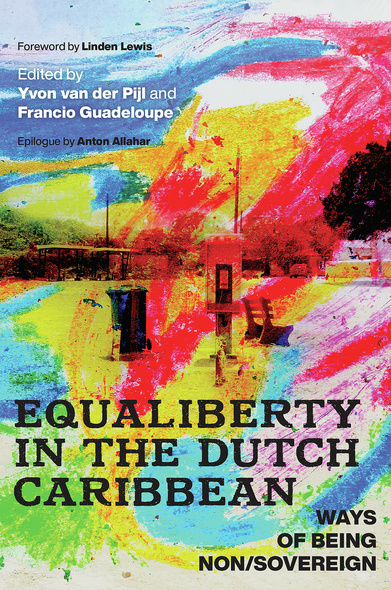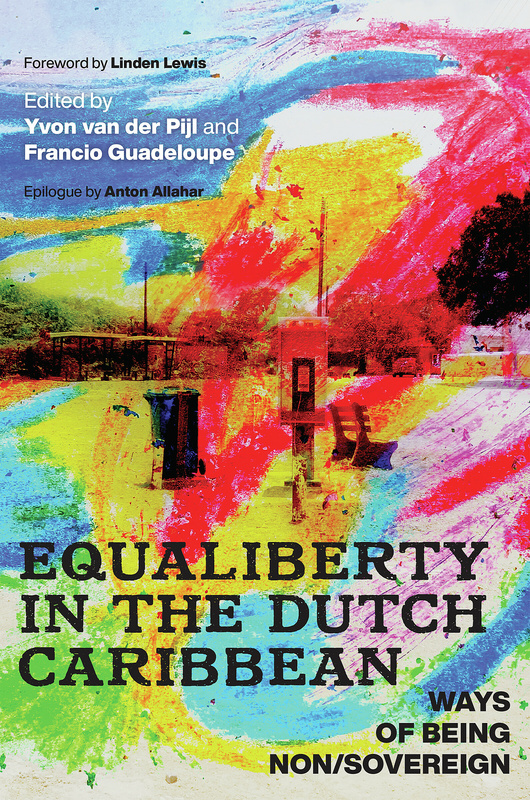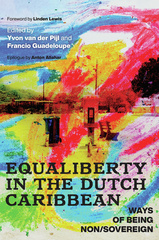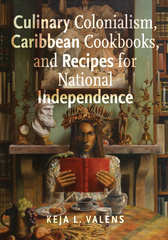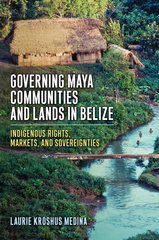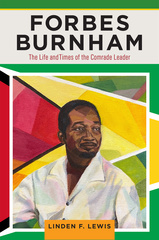Equaliberty in the Dutch Caribbean
Ways of Being Non/Sovereign
Edited by Yvon van der Pijl and Francio Guadeloupe; Foreword by Linden F. Lewis; Epilogue by Anton Allahar
SERIES:
Critical Caribbean Studies
Rutgers University Press
Equaliberty in the Dutch Caribbean is a collection of essays that explores fundamental questions of equality and freedom on the non-sovereign islands of the Dutch Caribbean. Drawing on in-depth ethnographic research, historical and media analysis, the study of popular culture, and autoethnographic accounts, the various contributions challenge conventional assumptions about political non/sovereignty. While the book recognizes the existence of nationalist independence movements, it opens a critical space to look at other forms of political articulation, autonomy, liberty, and a good life. Focusing on all six different islands and through a multitude of voices and stories, the volume engages with the everyday projects, ordinary imaginaries, and dreams of equaliberty alongside the work of independistas and traditional social movements aiming for more or full self-determination. As such, it offers a rich and powerful telling of the various ways of being in and belonging to our contemporary postcolonial world.
Equaliberty in the Dutch Caribbean is a compelling collection of debates, case studies, and ethnographies of belonging. It is a philosophical and cultural search for a political space of comfort between colonial dependence and autonomy. Focusing on the non-sovereign status of the Caribbean it opens up the possibility for articulating notions of freedom and liberty in the region.
With editors persuasively arguing for a revolutionary non-Western vision of non/sovereignty, this outstanding anthology offers an enlightening alternative look at questions of belonging, and equality and freedom (equaliberty). In case after case in the Dutch-Caribbean, contributors challenge Western-imposed notions of sovereignty and envision new political and socio-cultural futures, making significant contributions to Caribbean Studies and beyond.
Equaliberty in the Dutch Caribbean is a compelling collection of debates, case studies, and ethnographies of belonging. It is a philosophical and cultural search for a political space of comfort between colonial dependence and autonomy. Focusing on the non-sovereign status of the Caribbean it opens up the possibility for articulating notions of freedom and liberty in the region.
With editors persuasively arguing for a revolutionary non-Western vision of non/sovereignty, this outstanding anthology offers an enlightening alternative look at questions of belonging, and equality and freedom (equaliberty). In case after case in the Dutch-Caribbean, contributors challenge Western-imposed notions of sovereignty and envision new political and socio-cultural futures, making significant contributions to Caribbean Studies and beyond.
YVON VAN DER PIJL is an associate professor of cultural anthropology at Utrecht University in the Netherlands. She co-edited the volume Antropologische vergezichten: mondialisering, migratie en multiculturaliteit.
FRANCIO GUADELOUPE is an associate professor of anthropology of the University of Amsterdam and senior research fellow at the Royal Netherlands Institute for Southeast Asian and Caribbean Studies (KITLV-KNAW), the Netherlands. He is the author of Chanting Down the New Jerusalem: Calypso,Christianity, and Capitalism in the Caribbean.
LINDEN LEWIS is a Presidential Professor of Sociology at Bucknell University. He is the editor of Caribbean Sovereignty, Development, and Democracy in an Age of Globalization and the co-editor of Color, Hair and Bone: Race in the Twenty-first Century.
FRANCIO GUADELOUPE is an associate professor of anthropology of the University of Amsterdam and senior research fellow at the Royal Netherlands Institute for Southeast Asian and Caribbean Studies (KITLV-KNAW), the Netherlands. He is the author of Chanting Down the New Jerusalem: Calypso,Christianity, and Capitalism in the Caribbean.
LINDEN LEWIS is a Presidential Professor of Sociology at Bucknell University. He is the editor of Caribbean Sovereignty, Development, and Democracy in an Age of Globalization and the co-editor of Color, Hair and Bone: Race in the Twenty-first Century.
Foreword
Linden Lewis
Introduction
Francio Guadeloupe and Yvon van der Pijl
1 Stories of Autonomy on Non-Sovereign Saba: Flipping the Script of Postcolonial Resistance
Nikki Mulder
2 “Education Must Be More!” Imagining and (Re)producing St. Martin/Sint Maarten Belonging
Jordi Halfman
3 People from Outside: Transnationalism and Nationness on Twenty-First-Century
Curaçao
Guiselle Starink-Martha
4 The Trinta di Mei Labor Revolt and Its Aftermath: Anticipating a Just and Equitable Curaçaoan Nation
Rose Mary Allen
5 Some Are More Equal than Others? Human Rights Education at the University of Curaçao’s School of Law
Lisenne Delgado
6 Thinking, Seeing, and Doing like a Kingdom: The Making of Caribbean Netherlands Statistics and the “Native Bonairian”
Francisca Grommé
7 After Free Markets and Foundations: Challenges to Self-Determination on St. Martin
Antonio Carmona Báez
8 Sweet Breakaway: Where Equality and Liberty Meet on Aruba
Gregory Richardson
9 “We Come out to Free Up”: Movement, Dance, and Liberation in West Indian Calypso
Charissa Arlette Granger
10 “It’s Gonna Be Incredible”: Lessons on Being, Becoming, and Belonging from Statian Youth
Nicole Sanches and Yvon van der Pijl
Epilogue
Anton Allahar
Acknowledgments
Notes on Contributors
Index
Linden Lewis
Introduction
Francio Guadeloupe and Yvon van der Pijl
1 Stories of Autonomy on Non-Sovereign Saba: Flipping the Script of Postcolonial Resistance
Nikki Mulder
2 “Education Must Be More!” Imagining and (Re)producing St. Martin/Sint Maarten Belonging
Jordi Halfman
3 People from Outside: Transnationalism and Nationness on Twenty-First-Century
Curaçao
Guiselle Starink-Martha
4 The Trinta di Mei Labor Revolt and Its Aftermath: Anticipating a Just and Equitable Curaçaoan Nation
Rose Mary Allen
5 Some Are More Equal than Others? Human Rights Education at the University of Curaçao’s School of Law
Lisenne Delgado
6 Thinking, Seeing, and Doing like a Kingdom: The Making of Caribbean Netherlands Statistics and the “Native Bonairian”
Francisca Grommé
7 After Free Markets and Foundations: Challenges to Self-Determination on St. Martin
Antonio Carmona Báez
8 Sweet Breakaway: Where Equality and Liberty Meet on Aruba
Gregory Richardson
9 “We Come out to Free Up”: Movement, Dance, and Liberation in West Indian Calypso
Charissa Arlette Granger
10 “It’s Gonna Be Incredible”: Lessons on Being, Becoming, and Belonging from Statian Youth
Nicole Sanches and Yvon van der Pijl
Epilogue
Anton Allahar
Acknowledgments
Notes on Contributors
Index

